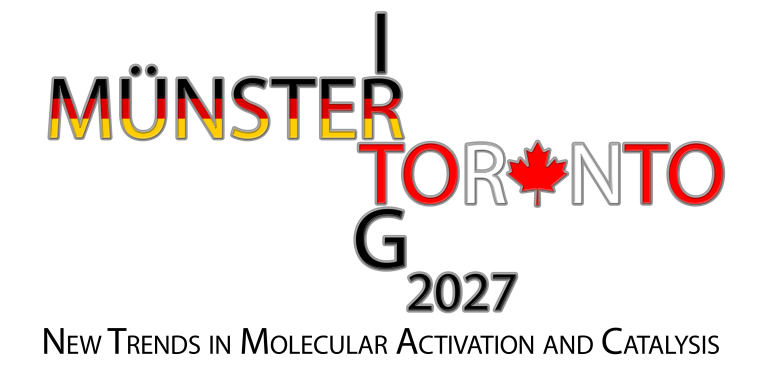

The activation and selective transformation of chemical compounds, particularly of those molecules with limited reactivity, still constitute major challenges in current chemical research. Based on various approaches to meet these challenges in the past, chemical science has meanwhile advanced to a stage, where collaborative efforts by researchers from different subdisciplines enable the development of new methods for the activation and transformation of less-reactive substrates on the molecular level.
Ten groups from the University of Münster and eight groups from the University of Toronto have teamed up to study such “New Trends in Molecular Activation and Catalysis”.
The joint research program comprises investigations of Frustrated-Lewis-Pairs (FLPs), the use of new catalysts derived from main-group elements as well as of catalysts containing recognition units for selected substrates and the evaluation of new pathways for the activation of C−H, C−C and C−X bonds. Quantum-chemical calculations will accompany the whole research program and are directed towards a better understanding of the interactions of substrate molecules with selected catalysts or activators and of the persistence of substrate-activator aggregates.
Apart from striving for excellence in scientific research, a major thrust of the program is directed towards the development and implementation of novel and innovative methods in graduate student training with a special focus on international exposure of the graduate students. Doctoral students from Münster and from Toronto will be required to do research on joint projects for at least six months in the laboratory of one of the foreign partners. Each doctoral student will have two research advisors, one from Münster and one from Toronto, who will together act as mentors for research and for the doctoral thesis. From experience with IRTGs we have learned that doctoral students benefit tremendously from the international experience and from receiving graduate education from leading academic institutions in two countries, while the time needed for graduation does not increase. Scientific training at academic institutions in two countries, combined with the acquisition of additional soft skills like the ability to communicate in a foreign language and to efficiently interact in a foreign laboratory, are key qualifications required in a globalized industrial world and will give the IRTG graduates a distinct advantage in their ability to compete successfully in the national and international workplace.

